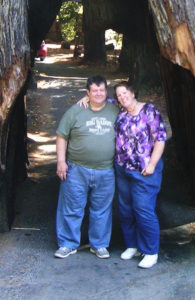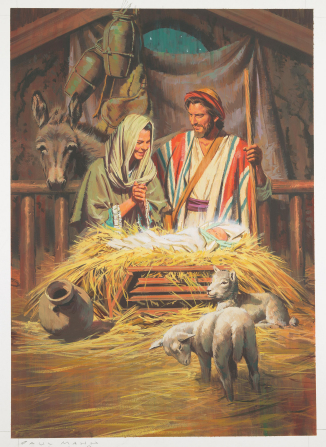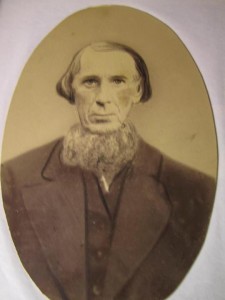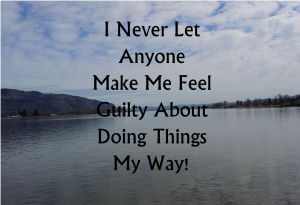 Those who have read me before won’t need this introduction, but I think that before I write about something that is going to be this controversial, I ought to give some background so you know where this comes from.
Those who have read me before won’t need this introduction, but I think that before I write about something that is going to be this controversial, I ought to give some background so you know where this comes from.
I’m a member in good standing of The Church of Jesus Christ of Latter-day Saints, which makes me in popular vernacular, a Mormon. I am married to a wonderful wife and have numerous and precious posterity. I am also, again in popular vernacular, gay. Yes, I know that some of you will think that these two statements can’t go together, and that is part of the point I want to make.
First, let me say that “gay” is about as useful a word to describe me as “Mormon”, because neither of them say much about the more complex feelings I experience about sexuality and faith. Yet, since people like neat little labels so much, think of me as a gay Mormon who is maybe a little off center of both parts of that name.
Indeed, it puts me into a little world of my own and keeps me from fitting squarely into any known convention. There are people in both the gay community and the Mormon community that wish I would shut up and/or go away.
I’m also a card-carrying Republican, a political and economic conservative, but with a more-than-slight libertarian leaning. I think the government intrudes in all the wrong ways, is not helpful, and regulates our lives too closely. In all of my political thoughts, I occasionally discover a liberal idea that appeals to me. See. I don’t exactly fit any convential political movements either.
Not fitting in is something I do well, and that includes in my reactions to the recent Supreme Court decision regarding same-sex marriage. I have never wavered in my belief that marriage is and ought to be between a man and a woman, in the eyes of God. I have always supported the doctrine of the Church to which I belong regarding the meaning and place of marriage in mortal life and eternity. Not only have I supported it conceptually, but wanted with all my heart to conform to it personally. My desire to be husband, father, grandfather, and ancestor has always been strong and it is the life I’ve followed.
I’ve been writing about my life for many years coinciding with the movement to legalize same-sex marriage, and although it has always seemed a natural thing for me to comment on, my relative silence on the subject has not been accidental. It has not been out of fear of what others may think or how friends might react, in either direction. It has mostly been because I have been fairly ambivalent about it.
On the one hand, I haven’t seen why so many people have wanted it. On the other hand, I haven’t seen why so many people are opposed to it. I’m sure that right now, in response to this, I could get some pretty strong arguments for either point of view. Feel free. I don’t mind the discussion, but the liberal in me says “why not?”, the libertarian in me thinks the government shouldn’t have anything to do with regulating marriage, and the conservative says that we shouldn’t let nine unelected people in black robes make laws for us.
It isn’t what I think about it that concerns me. I have always worked things out my own way and have done my best to stand up for what I believe in. I’ve done this without particularly caring whether it made me popular.
What does concern me is how people treat each other and how things in the news divide people. I have noticed a growing trend over the years, not just on the subject of same-sex marriage, for people to erupt in anger and otherwise good friends to turn against each other over disagreements. Not to say that issues aren’t important, but I’ve always felt that love and friendship are greater than disagreements.
I know it can be hard when people mock and cast stones at the things you hold sacred. I’ve had to put up with people I’ve considered good friends who think nothing of using ridicule and sarcasm to criticize things I believe in. I’ve had to hold firm to my beliefs in the face of people who think that unkindness makes them right.
Just because you can say something in a clever way doesn’t stamp your point of view with the seal of truth. Being good at slinging profanity doesn’t make you a genius, but there are many people that will give your words more credence if you dirty up your language a little.
I especially hate empty and overused platitudes and slogans that are thrown around as if they have any substance to them at all. All they really mean are, “Shut up. You’re wrong. Don’t talk to me.”
A long time ago, before I “came out” to a lot of people, I told a supervisor at work that I’m basically and almost exclusively attracted to men, but that I had decided to follow my conscience and live according to the tenets of my faith. She was a nice woman and I know she meant well, but her response was, “Well, you can’t help who you love.”
That’s one of those slogans I’ve heard over the years, and it is empty and overused. Of course I can help who I love. In fact, I make conscious decisions every day to love people. It is more than just some automatic and goofy feeling that comes over you and you can’t do anything about. It is a choice and requires action to make it come alive. I think it’s because I’ve made it an active practice in my life, but loving people, even those that most people think of as unloveable, is a fairly natural thing to me. I’ve never made a conscious decision to hate someone, and anyone I find myself hating, I go to great pains to learn to love them.
I tried again to share with that supervisor, to let her know a little more about what I felt inside, and all she could do was repeat her slogan. It doesn’t take any thought or effort to wrap people up in a platitude and call it your gift to them. It’s a lot harder to listen and consider things that might expand your thoughts and open your mind a little.
I know it seems like I’m picking on the liberal side of questions here, and I have to say that I see it in its more overt forms when socially liberal people are picking at conservative ideals. I also see it when the non-religious are opposing people of faith. It’s very popular to say mean things about religious people, to defame and insult religious leaders, and mock the faith of others.
As a person of deep faith, it does hurt, but it doesn’t shaken. I’ve heard a lot of it and it still happens, and I’m still as firm in my faith as ever.
In spite of all of that, there is something I hate more than meanness from left-leaning people and that is meanness and lack of compassion from people who claim to be disciples of Jesus. Believe you me, I’ve heard that too, like when someone remarked to me as I came into the temple, “I didn’t know they let your kind in here.”
I might be showing some bias here, but I believe that disciples of Christ ought live up to a higher ideal. A Christian ought to share the attributes of Christ, who had no problem associating with people who are different, those whose standards and values were not equal to his, and even people who didn’t agree with him. His life and death were all centered in love for people who didn’t measure up to him, which includes us all, even his most ardent followers. I hope I am one of them.
According to Jesus, there are two great commandments. The first is to love God with all our hearts. The second, which he said is like the first, is to love our neighbor as ourselves. He also made it clear that our neighbor is anyone who needs our help.
To be a follower of Jesus, we must be loving in our conversations with others, even if we think they’re wrong. It is possible to hold true to a belief without being unkind to people who don’t. It is our duty to be as willing to love and support an unbeliever as it is a believer, perhaps even more.
A Christian can maintain a belief that marriage should be between a man and a woman and still love and support people of the same sex who have married each other. If they can’t accept you unless you change your mind, that is their choice, but the teachings of Jesus have left you no choice but to love even neighbors like them as yourself.
Charity and love are healing;
These will give the clearest sight;
When I saw my brother’s failing,
I was not exactly right.
Now I’ll take no further trouble;
Jesus’ love is all my theme;
Little motes are but a bubble
When I think upon the beam.
(Eliza R. Show, “Truth Reflects Upon Our Senses”)
Why should a follower of Christ care about being reviled and rejected a little? It comes with the territory. It is your calling to endure trials. It is the source of your blessings. Jesus said that “great is your reward in heaven” if you endure such things. We can’t return hate for hate. Jesus commanded us to return love for hate. Remember the question Jesus asked, “For if ye love them which love you, what reward have ye?” (Matthew 5:46)
Our language must be all about the love of God. As the great LDS author penned, “Jesus’ love is all my theme!”
Most of all, we must take care that “love they neighbor as thyself” doesn’t become one of those empty and overused slogans.
 8 people like this post.
8 people like this post.
Like this:
Like Loading...
Copyright 2025, Inner Vessel Productions.
 I grew up in The Church of Jesus Christ of Latter-day Saints (LDS) and knew that genealogy was an important thing. When I was very little, I didn’t know why, but my mother was into it, my aunts were into it, and my grandmother was really into it. She lived in a trailer behind my aunt Jaquita’s house. We often visited there and I always spent a little time with Granny.
I grew up in The Church of Jesus Christ of Latter-day Saints (LDS) and knew that genealogy was an important thing. When I was very little, I didn’t know why, but my mother was into it, my aunts were into it, and my grandmother was really into it. She lived in a trailer behind my aunt Jaquita’s house. We often visited there and I always spent a little time with Granny.



 About eight years ago, I was interviewed by Helen Whitney, a documentary filmmaker for her upcoming piece on The Church of Jesus Christ of Latter-day Saints (LDS) which aired on the Public Broadcasting System (PBS) as
About eight years ago, I was interviewed by Helen Whitney, a documentary filmmaker for her upcoming piece on The Church of Jesus Christ of Latter-day Saints (LDS) which aired on the Public Broadcasting System (PBS) as 










